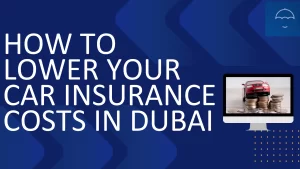Fraudulent Insurance Sellers: How to Avoid the Scam
Automobile insurance fraud is the most common in frequency and the average cost. So, I will share tips and advice to avoid insurance seller scams and fraud that plague the under regulated, and we will discuss its illegality and how to stay alert.
When does insurance fraud happen?
Insurance fraud occurs when any party involved in the insurance, whether the consumer, the company or the agent, commits deliberate deception to obtain illegitimate gains. Therefore it can occur during buying, using, or selling.
How are fraudulent insurance policies sold?
Illegal or unverified insurance agents, also known as ghost brokers, sell fraudulent insurance policies. They offer cheap deals on motor insurance and provide seemingly genuine insurance documents. In reality, victims are unknowingly driving around without insurance. Remember, it probably is if something sounds too good to be true.
Ghost brokers deliberately misrepresent themselves as insurance brokers, agents, or insurers for personal profit. In most cases, they become a real threat to unsuspecting members of vulnerable communities. They convincingly provide fake insurance policies using incorrect information or an entirely fake insurance policy.
The customer provides correct information, but the illegal insurance seller will alter the information to reduce the price. The insurance policy the customer pays for will be invalid because it will not match their correct details. Another tactic is to provide fake insurance documents for an inflated price. Either way, the customer is uninsured without knowing about it.
Fake insurance agents entice customers by offering policies at costs lower than the market rate and documents that look real. Eventually, they defraud consumers by collecting premiums for bogus policies with no intention or ability to pay claims.
Types of insurance scams
- Fake or bogus insurance.
- False advertising.
- Policy switching.
- Hidden charges.
How is a fraudulent insurance policy discovered?
Customers only find out their insurance policies are unverifiable when:
- The customer is pulled over by the police, and their insurance documents are discovered to be invalid; OR
- When they go to make a claim from the ‘insurer’.
Who suffers in insurance fraud?
Insurance fraud not only imposes costs on insurance companies, but it also threatens their competitiveness and future viability. It is also financially damaging to consumers and detrimental to the economy and society as a whole.
What can happen in the case of unverified insurance?
- Drivers incur a hefty fine and penalty points on their driving license when they are caught with invalid insurance. Remember that traffic violations on a driver’s record drive up insurance premiums.
- The driver will be unable to make any insurance claims in critical situations since the insurance stands null and void. They could end up paying tens of thousands in damage repair costs.
- Due to a lapse in insurance, the driver pays a high fee when they try to reinstate their insurance legitimately.
- The vehicle in question can be impounded, and the driver has to pay a fee to get it released.
What are the signs of fraudulent insurance sellers?
- The seller is aggressive and pressures a consumer to sign up for a policy right away before premiums go up.
- The premiums they offer are a lot lower than the market rate for comparable coverage.
- When a consumer tries to contact the insurer to get information, they can’t find a listed phone number.
- The broker charges a fee to provide you with a quote.
- They will only accept payment in cash or sent through an electronic or wire transfer, or to an unidentified post-office box.
- They provide an unofficial phone number or email address as their primary means of contact.
What to do when suspecting vehicle insurance is illegal?
- Check whether the UAE’s Insurance Authority website lists the policy.
- Contact the insurer to ascertain that the policy is legitimate.
- Crosscheck your personal details with the insurer’s record.
- Report fraudulent insurance policy seller to the police.
How to avoid a scam?
- Ask for recommendations from trusted friends or family.
- Purchase car insurance only from reputable insurance providers.
- Find authorized brokers listed on the official website of an insurance company.
- Research on the company you’re thinking of going with.
- Before signing any documents or writing a check, stop and take the time to confirm that the insurance company is reliable.
- Make sure the name listed in the insurance quote matches the name on their official name.
- Take your time to go through the policy details and cross-check with the insurance company by calling their helpline.
- Do not pay through unverifiable payment modes such as cash, transfer or money wiring service – this is not a practice in the insurance industry.
- Always prefer to make payments using digital payment modes such as credit cards.
- Never sign a blank document. Always read the document carefully and ensure the information provided is accurate.
- Remember legitimate insurance sellers never charge any type of signing or referral fees.
Buy insurance with complete trust
Shopping now for insurance?
Avoid scams and illegal businesses. There are plenty of ghost brokers out there who offer deals that are too good to be true.
To compare insurance quotes from licensed insurers in UAE and for easy, affordable and valid policies visit us or call 800 POLICY.
FAQ
Plenty of licensed insurance companies in UAE offer plans you can compare on our website.
No, buyanyinsurance does not charge fees for providing quotes.
By giving false answers when applying for auto insurance, drivers prevent insurers from accurately assessing the risk they’re taking on and charging premiums accordingly. In other words, drivers aren’t paying for all the protection they’re receiving.
You can send your Fraud Report to SAI by using this form https://saiuae.gov.ae/en/Pages/Report-Fraud.aspx .Please fill the below form to submit your Fraud Report or download the form and send to [email protected]
It means making a fraudulent insurance claim for payment. Examples range from slightly exaggerating a claim and falsifying injuries to deliberately causing an accident or damaging a vehicle.
Contact Us:
Originally published Feb 10, 2020 16:48:00 PM, updated Jun 06, 2024



